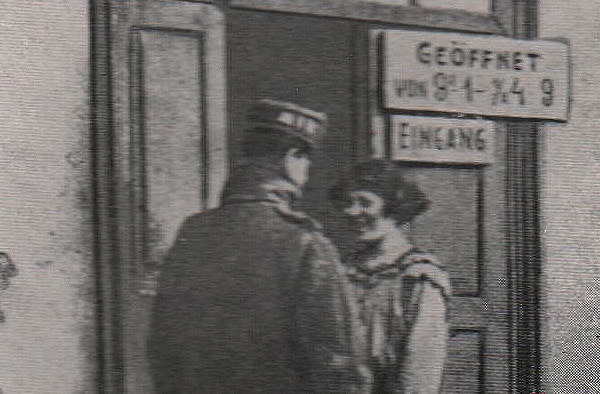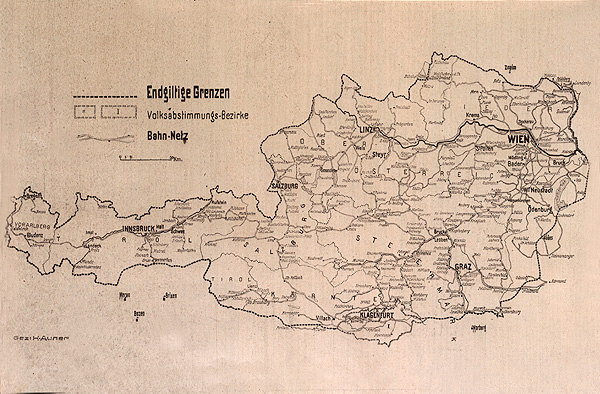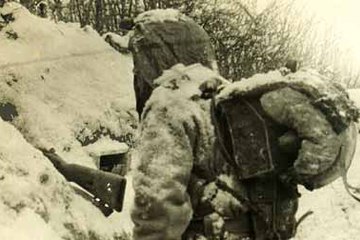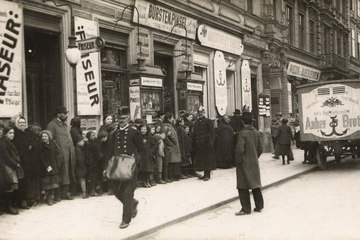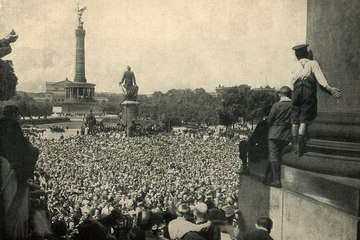Michaela Scharf
A Country Draws Its Borders
The genesis of the political parties
Tones and Sounds
During the First World War propaganda was acknowledged to be a crucial tool in modern warfare. Not only posters, flyers and postcards were brought out with patriotic motifs and vilifying slogans against the enemy, but also sound recordings with political speeches and propagandist pieces of music.
"War fatigue – this is the most stupid word of our time"
The longer the war lasted, the more disillusionment and war fatigue spread among the civil population and the soldiers. The hopes of the latter, who had seen the war as a great adventure, as a great didactic force and chance to put their manhood to the test, were bitterly disappointed.
"But enthusiasm for the war has vanished"
The exultation that erupted – most of all gripping the intellectual and academic classes and also the middle-class milieu –was rapidly overshadowed by the reality of the mechanised war. As the first statistics of losses were announced even the frenetic, jubilant shouts of many volunteers marching off to war faded into a sad echo.
The War Euphoria Myth
The idea of the all-inclusive enthusiasm for war long dominated the historiography of the First World war. More recent historical research has however unmasked the theory of a euphoria encompassing all classes and political parties as a legend and attests that this view is biased and one-sided.
"War! We felt a cleansing, liberation, and a tremendous hope."
Patent enthusiasm at the outbreak of the war was manifest particularly in intellectual circles, writers, artists, academics, philosophers, scientists, etc. They saw armed engagement as a catharsis, as a cleansing force, as a chance to escape from a pre-war world that had become fatigued and futile.
"At last we welcomed with flowers what had been overdue and suppressed for so long."
Immediately after the outbreak of the First World War, widespread sections of the Austrian-Hungarian population were gripped by nothing less than a war craze, scarcely conceivable from today’s perspective and knowing how many millions were killed through the war.
Neurotics or shirkers?
Mental disturbances to soldiers were widespread in all countries involved in the First World War. There were nevertheless national differences in the way mentally damaged soldiers were treated.

